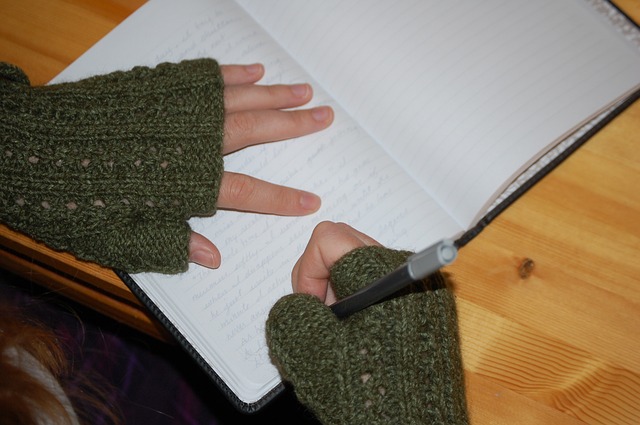After my mom died, I found a blank hardcover journal in her closet with a quote from Winston Churchill: “Never, never, never give up.”
My Crohn’s disease had flared up and I’d dropped to 90 pounds, unable to digest food normally. I lost enthusiasm for my work, snapped at my family and dodged my friends. All I wanted to do was curl up in a ball and stay in bed. Instead, I filled that journal with entries addressed to my mother as a way to continue a relationship I wasn’t ready to end.
What I didn’t know then was that writing about stressful events helps us come to terms with them, minimizing the impact these stressors have on our physical health. I didn’t know that studies had proved that people who wrote about past traumas strengthened their immune cells, called T-lymphocytes, and had fewer health-center visits for six months after writing.
I hadn’t heard of scriptotherapy, in which doctors and counselors use therapeutic writing techniques as an analytical process to address negativity, trauma, fear, anger, aggression, conflict and violence. And I didn’t know that writing about emotional upheavals can benefit us on so many levels: socially, psychologically, behaviorally and physically.
I knew how journal writing made me feel. I knew that I could start an entry feeling empty or angry and, 10 minutes later, close the book feeling lifted, full, often grateful. I knew it helped pull me out of my despair.
When you write down your thoughts, you move problems into a different dimension of consciousness. “You actually change the problem by framing it and moving it into an area of your experience more involved with problem solving,” according to Dr. Sheppard B. Kominars, author of Write for Life: Healing Mind, Body, and Spirit Through Journal Writing. Writing triggers a different assessment process, enabling you to tap into a storehouse of understanding that promotes healing solutions.
The research of scriptotherapy advocate and University of Texas psychologist Dr. James W. Pennebaker, who recognized the connection between psychological events and recurring health problems, confirmed for me what I had suspected: regular journal writing likely contributed to the remission of my Crohn’s.
Writing has been recognized for its healing power at least since biblical times, when the apostle Paul wrote encouraging healing letters to friends. And journal writing gave Anne Frank hope amidst mankind’s ruthlessness:
“I still believe, in spite of everything, that people are truly good at heart… It’s utterly impossible for me to build my life on a foundation of chaos, suffering and death.… And yet, when I look up at the sky, I somehow feel that everything will change for the better, that this cruelty too shall end, that peace and tranquility will return once more.”
Some may think of diaries as being like captain’s logs, recordings of what happened. But for me they are about making sense of what happened, about planning, about problem solving, about discovering myself. E. M. Forster’s question resonates with me: “How do I know what I think until I see what I say?” Taken further, how do I know who I am until I see what I think?
I no longer address entries to my mom but rather engage in daily conversations with myself on the page—a practice that helped me to accept my mother’s loss and inspired me to quit my job, renew my friendships, enroll in graduate school and embark on a new career. Years later, my morning journal writing still fuels my days. It’s something I now share with my university students and as co-leader of yoga-writing workshops.
“How do I know what to write?” I often hear. I typically write out whatever has been spinning around my mind so I can release myself from ruminating. Sometimes I use prompts such as this one derived from a Native American parable:
A man tells his grandchildren about a fight going on inside him, a terrible fight between two wolves. One wolf represents fear, anger, envy, regret, greed, arrogance, self-pity, guilt, resentment and ego. The other stands for joy, peace, love, hope, humility, kindness, empathy, truth and generosity.
“This same fight is going on inside you and inside every other person, too,” he added.
One child asked, “Which wolf will win?” The old Cherokee simply replied, “The one you feed.”
Which part of yourself have you been feeding? How can you shift your thoughts and actions to feed the part of yourself you want to grow stronger?
Whether we unload onto the page whatever our brains have been churning around or use a prompt to tap into unexplored territory or discover a new angle of a recurring issue, regular journal writing can help improve our emotional and physical health—promoting energy so that we can create the life we envision.
Relephant Read:
Journaling Your Way to a Better Self: 7 Tips.
~
Author: Jenny Patton
Editor: Travis May
Image: Pixabay












Read 30 comments and reply